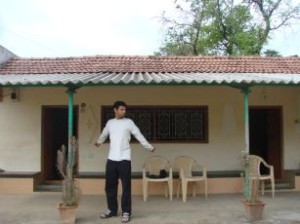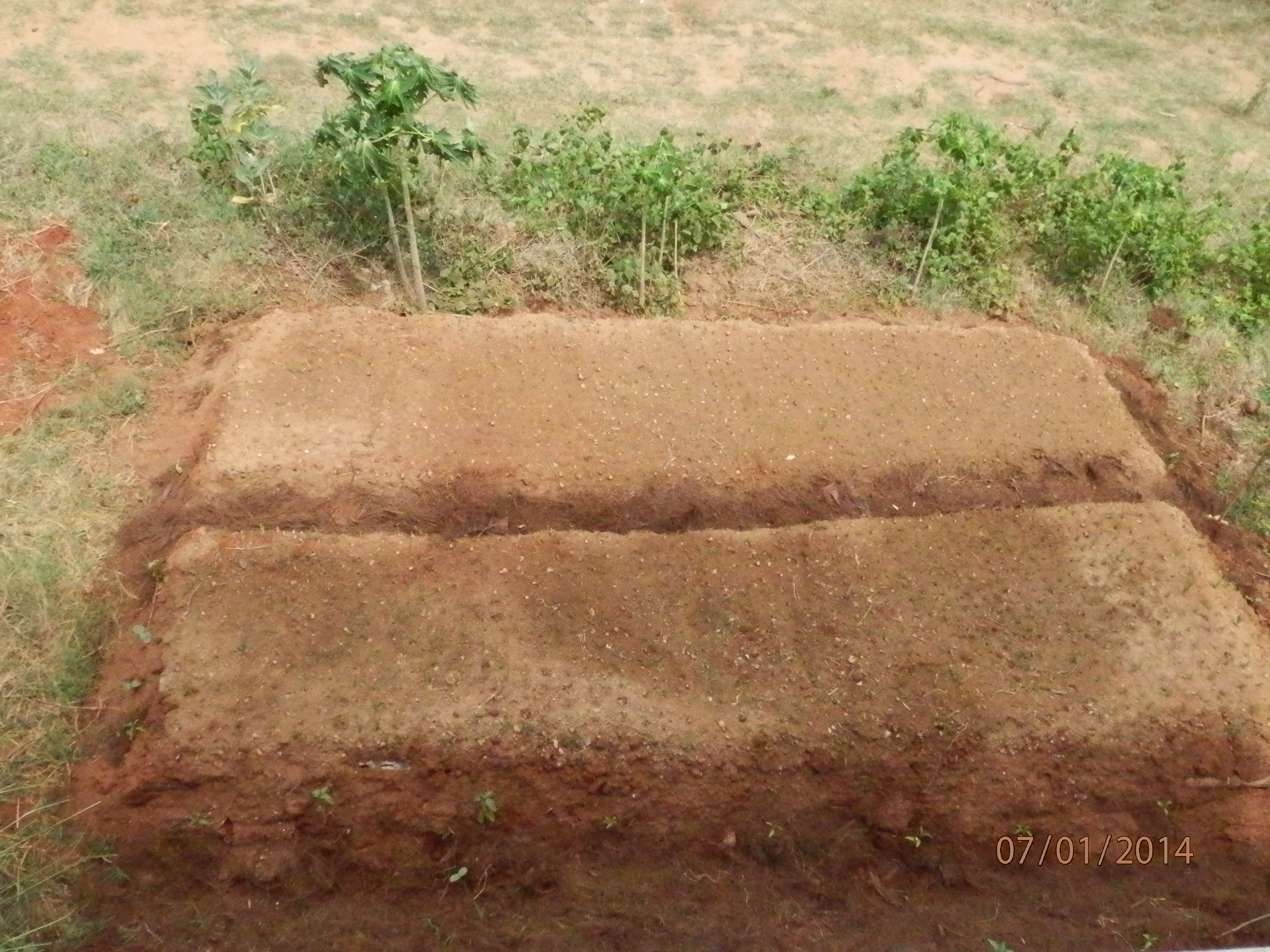Our temp village house
 One of our local friends graciously offered his house on a plantain farm for free until we finish building our house (gift-economy at work!). When he told us that some things need fixing, we didn’t take him that seriously.
One of our local friends graciously offered his house on a plantain farm for free until we finish building our house (gift-economy at work!). When he told us that some things need fixing, we didn’t take him that seriously.
We started the process of move-in and thus began a series of fixer upper tasks : fixing a leaking roof, covering the windows with mosquito nets, cleaning a ton of dust, changing a wash basin, repainting the kitchen, fixing the ceiling fan that thinks it’s a helicopter, installing a bamboo gate to prevent Aum from running into the backyard well, changing light bulbs of course and so on. Our friend pitched in with all he can just to get us going.
Other than cleaning, we needed help for pretty much all other tasks. And it took us dozens of phone calls, personal home visits, work and re-work to get things done.
After a while, their kindness towards strangers like us, their willingness to be of service, their peaceful demeanor and tendency to enjoy small things (a tea, a walk, the breeze, stopping to smile at Aum…) made us look at them differently. Aren’t people supposed to become more selfish when things go wrong? Shouldn’t people be frustrated, angry, highly suspicious of everyone and less friendly in an environment where steady jobs and relevance to the economy pretty much don’t exist?
Though we grew up in villages, this is the first time as adults we are actually living in a village. And we are witnessing the unique “spirit” of Indian villagers often captured in Nipun and Guri’s walking pilgrimage. We witness that spirit when a 70 year old grandpa instantly climbs on a guava tree just because I was looking at a fruit; when a neighbor offers his undiluted cow’s milk for Aum for half the market price; when the telephone serviceman pulls a heavy cable for 100 meters to give us the connection; when four neighborhood kids spend an hour pushing Aum on his bike; when Babu, a local friend designates himself as our go-to person and makes himself available for anything and everything for free; when Dorai, a busy carpenter talks to us for an hour about being content and the joy of helping others …
So we are learning. It has taken us almost two months to just settle down in a house that doesn’t have a clock or a mirror. It took a month to plough the land and sow the seeds, a month to get the first design from the architect. We could take a business-like approach, study the inefficiencies and try to fix them using a combination of carrots, sticks and relentless persuasion. We might get our jobs done but this approach doesn’t feel right. We did not come here to execute our life like a business. We want genuine relationships that go beyond commerce; we want our work to give us as much joy as the results; we don’t want stress. Technically we may be very inefficient but organically, taking life as it comes and working with it is what appeals to us right now.

